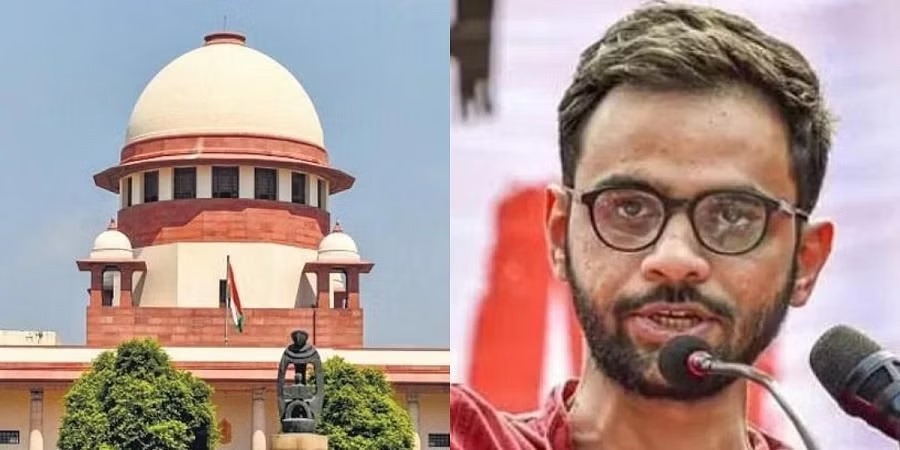The Supreme Court of India, on Tuesday, called for a response from the Centre regarding a petition filed by Umar Khalid, a former Jawaharlal Nehru University (JNU) student. In his plea, Khalid challenges various provisions of the Unlawful Activities (Prevention) Act (UAPA), a stringent anti-terror law. This development comes in the backdrop of Khalid’s arrest in September 2020 in connection with the Northeast Delhi riots that occurred in February 2020, resulting in 53 deaths and hundreds of injuries.
Khalid had been charged with both the UAPA and the Prevention of Damage to Public Property Act, 1984. His plea for bail was denied by a trial court in March 2022, and this decision was upheld by the Delhi High Court on October 18, 2022. The High Court affirmed that Khalid was in constant communication with other co-accused and that the allegations against him were prima facie true. Furthermore, the High Court concluded that his actions could prima facie be categorized as a “terrorist act” under the UAPA.
A bench of Justices Aniruddha Bose and Bela M Trivedi of the Supreme Court also decided to hear Khalid’s bail plea in connection with the February 2020 Northeast Delhi communal riots alongside his challenge to the UAPA provisions due to the overlapping implications of these cases.
Khalid had approached the Supreme Court after the Delhi High Court’s verdict, which upheld the trial court’s denial of bail. During Tuesday’s proceedings, the Supreme Court pointed out that there were other related petitions on the same subject and scheduled a hearing for all of them on November 22. The Court had initially grouped Khalid’s bail petition with his challenge to the UAPA, setting a hearing date for November 1. However, with the introduction of a fresh plea, the Court decided to consolidate all relevant matters for simultaneous consideration in November.
The Supreme Court’s bench justified this decision, stating, “We are listing the writ petition along with the special leave petition for bail because they have overlapping implications. Other connected matters also will be taken up with these since they are also challenges against Sections 15(1)(a) and 18 of the UAPA.”
The case of Umar Khalid, along with others like Sharjeel Imam, has attracted significant attention as they have been accused of being the “masterminds” behind the February 2020 riots, which occurred during protests against the Citizenship (Amendment) Act (CAA) and the National Register of Citizens (NRC). These protests led to widespread violence and unrest.
Umar Khalid, arrested by the Delhi Police in September 2020, has consistently maintained that he had no criminal involvement in the violence and no conspiratorial connections with other accused individuals in the case. The Supreme Court’s forthcoming decision on his plea challenging the UAPA provisions and his bail application will undoubtedly have far-reaching implications for how anti-terror laws are applied in India.
The Supreme Court’s decision to hear these petitions together on November 22 will be closely watched by legal experts, human rights advocates, and the general public as it could set important precedents regarding the interpretation and application of the UAPA.

